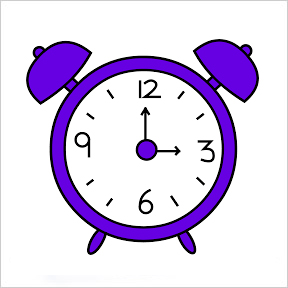
 Recently the 2017 Nobel prize in Physiology or Medicine was jointly awarded to American scientists Jeffrey C. Hall, Michael Rosbash, and Michael W. Young for their discoveries of molecular mechanisms controlling circadian rhythms, the process by which our internal 24-hour biological clock is regulated. Circadian rhythms are physical, mental and behavioral changes that follow a daily cycle. The name comes from the Latin, “circa” meaning “around”, and “dies” meaning “day.” Circadian rhythms are known to exist in unicellular cyanobacteria and all multicellular organisms, including fungi, plants, insects, rodents, and humans. Scientists have long known that an essential feature of survival is the ability of our inner clocks to anticipate fluctuations between day and night to optimize behavior and physiology.
Recently the 2017 Nobel prize in Physiology or Medicine was jointly awarded to American scientists Jeffrey C. Hall, Michael Rosbash, and Michael W. Young for their discoveries of molecular mechanisms controlling circadian rhythms, the process by which our internal 24-hour biological clock is regulated. Circadian rhythms are physical, mental and behavioral changes that follow a daily cycle. The name comes from the Latin, “circa” meaning “around”, and “dies” meaning “day.” Circadian rhythms are known to exist in unicellular cyanobacteria and all multicellular organisms, including fungi, plants, insects, rodents, and humans. Scientists have long known that an essential feature of survival is the ability of our inner clocks to anticipate fluctuations between day and night to optimize behavior and physiology.
With the knowledge that all living things have an internal clock, the researchers played a key role in identifying how cells in organisms regulate the body clock to allow the timely scheduling of physiological processes. These processes determine sleep-wake cycles, and have huge effects on hormone release, body temperature, blood pressure, and metabolism. The researchers made the discovery by peeking inside the biological clock and clarifying the inner workings of the “period gene” in fruit flies. The research is significant, as it provides insights into processes that are conserved across species, and helps to explain how plants, animals and humans adapt their own biological rhythms to be in synch with the earth’s revolutions.
Work began in 1984 with the isolation of the period gene that controls normal daily biological rhythm, and encodes a protein, known as PER, that accumulates in cells during the night and degrades during the day. Scientists now have a better understanding of body clocks that influence alertness, hunger, metabolism, fertility, mood and other biological processes. These clock genes also exert a significant influence on hormone production and the control of glycogenesis, insulin sensitivity and blood glucose fluctuations. Circadian dysfunction is linked to chronic health conditions that include sleep disorders, obesity, diabetes, depression, cognitive function, memory formation, and neurological diseases.
While we have read much about the importance of sleep, studies show that chronic misalignment with our circadian clock may be associated with increased risk of cancer, metabolic disorders, inflammation and neurodegenerative diseases. Per the Nobel Assembly at the Karolinska Institutet, this research helps to explain a fundamental physiological mechanism. More research into this vast and highly dynamic field may have important implications for our health and wellbeing, as scientists continue to study the impact of erratic sleeping and shiftwork patterns. Future medical research may provide answers as to what happens to our health when we chronically ignore our own natural and very precise body clocks, and hopefully lead to new ways to treat many diseases. In the meantime, paying more attention to our sleeping patterns, and the misalignment of our inner timekeeper with our lifestyle, could bode well for more optimal daily wellness and long-term health.
References:
Scientific Background Discoveries of Molecular Mechanisms Controlling the Circadian Rhythm. https://www.nobelprize.org/nobel_prizes/medicine/laureates/2017/advanced-medicineprize2017.pdf
2017 Nobel Prize in Medicine Goes to 3 Americans for Body Clock Studies. https://www.nytimes.com/2017/10/02/health/nobel-prize-medicine.html
The circadian rhythm research that just won a Noble prize in medicine, explained. https://www.vox.com/science-and-health/2017/10/2/16396486/2017-nobel-prize-award-medicine-physiology-michael-rosbash-jeffrey-hall-michael-young
Biological Clock Prize Shows Much ‘Nobel-Quality’ Work Goes Uncredited. https://blogs.scientificamerican.com/talking-back/biological-clock-prize-shows-much-ldquo-nobel-quality-rdquo-work-goes-uncredited/
3 scientists just won the Noble Prize for discovering how body clocks are regulated – here’s why that’s such a big deal. http://www.businessinsider.com/hall-rosbash-young-nobel-prize-physiology-medicine-circadian-clock-2017-10
How we tick: U.S. ‘body clock’ scientists with Nobel medicine prize. https://www.reuters.com/article/us-nobel-prize-medicine/how-we-tick-u-s-body-clock-scientists-win-nobel-medicine-prize-idUSKCN1C70Y7
Biological Clock Researchers Win 2017 Nobel Prize in Physiology or Medicine. https://www.forbes.com/sites/davidkroll/2017/10/02/biological-clock-researchers-win-2017-nobel-prize-in-physiology-or-medicine/#7c72a94e339d
Circadian Rhythms Fact Sheet. https://www.nigms.nih.gov/education/pages/Factsheet_CircadianRhythms.aspx
* These statements have not been evaluated by the Food and Drug Administration. The products mentioned are not intended to diagnose, treat, cure, or prevent any disease.
